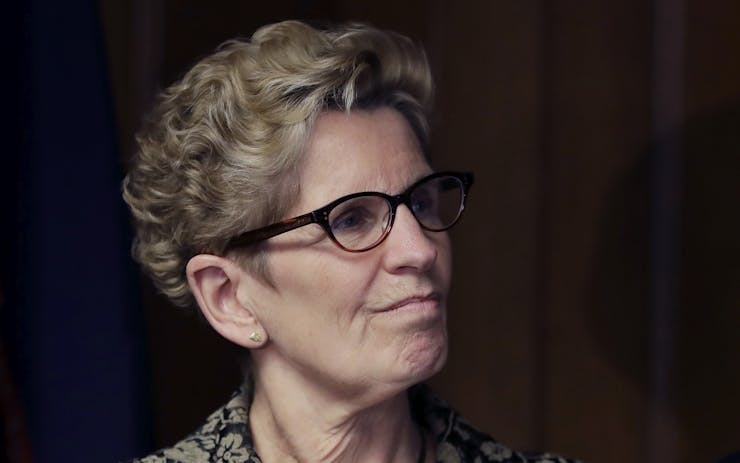It’s one of the loudest talking points among those who dread Canada’s impending legalization of cannabis: How will law enforcement handle the presumed influx of high drivers soon to be flooding Canadian roads?
On Monday, Ontario Premier Kathleen Wynne spoke publicly on the topic, announcing enhanced penalties for those caught operating motor vehicles under the influence of cannabis, with the harshest penalties reserved for young drivers, novice drivers, and commercial drivers.
“We had a goal to balance the new freedom that people in Ontario will have to use cannabis recreationally with everyone’s expectation that it will be managed responsibly,” said Wynne.
Specifics of the upped penalties come from the Canadian Press, which reports young and novice drivers (with a G1, G2, M1, or M2 licence) caught driving high will face licence suspensions of three to 30 days and fines between $250 to $450. Similar fines await operators of commercial vehicles found driving high, along with three-day licence suspensions.
“Overall, under the proposed changes any driver who registers a fail on a roadside screening device would be fined anywhere from $250 to $450,” reports the Canadian Press. “The current fine is $198. Drivers who refuse to provide a sample for a roadside test face a $550 fine under the proposed law, up from the current $198 fine.”
The perennial problem with tracking high driving: Authorities still lack a reliable roadside test for cannabis impairment, primarily due to cannabis’s ability to remain detectable in bloodstreams days and even weeks after impairment has waned.
The proposed best hope: oral test strips, which would examine THC levels in saliva and are currently awaiting approval by the federal government. (However, as the Toronto Star notes cryptically, “It’s unclear how effective they will be in cold weather.”)
As always, stay tuned.





